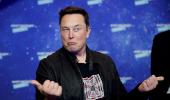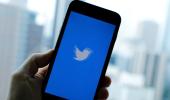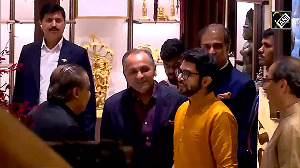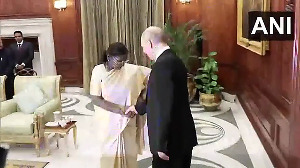It would be ludicrous to expect Modi, Erdogan or Biden to pay to keep blue ticks on their respective official accounts.
It would be equally ludicrous to expect the Delhi Metro or the Income Tax Department to pay, points out Devangshu Datta.
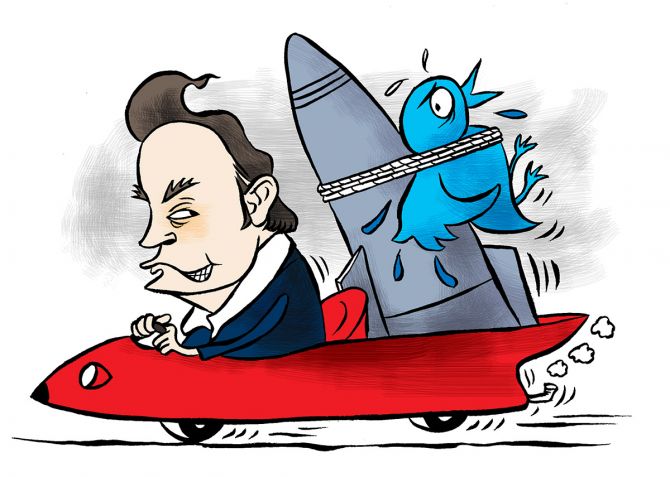
The Twitter takeover is going to end up fuelling multiple case studies.
It's hard to make financial sense of the terms of the acquisition.
Consider an entity with $5 billion (2021) revenues, net income of minus $221 million (meaning loss), free cash flows of $630 million, interest costs of $50 million and a revenue compound annual growth rate of just under 15 per cent (2016-2021). How much would you pay? Any MBA student who valued this at $44 billion would get an F.
Post-this leveraged buyout, Twitter has to service debt of $14 billion due to the deal.
It will have to repay about $1 billion per annum, going by the media reports.
It needs an extraordinary boost to revenues and also to cut costs. Hence, Elon Musk's initiation of massive layoffs, and the desperate efforts to develop new revenue streams.
Twitter relies on advertising. It made $570 million from data licensing and other stuff in 2021, versus around $4.4 billion from advertising.
Given a global recession, and a mature business model, data-licensing and advertising can't deliver the required growth.
So Mr Musk is hoping to get users to pay $8/month (or equivalent in purchasing power parity terms) to get, or to keep the blue tick for verification.
In return, he's offering blue tick accounts the right to post longer videos, see less ads, and the like.
He's also floated the idea of a paid model to allow for direct messaging to blue tick accounts.
The initial reaction from users has not only been negative, it's been derisive.
The likes of author Stephen King, astrophysicist Katie Mack, and Turkish President Recep Tayyip Erdogan (all accounts I follow) have laughed it off.
Less anecdotally, some 80 per cent of blue tick users don't want to pay, according to surveys.
Even those who are willing in principle, are unwilling to pay $8.
Twitter has about 400,000 verified accounts (roughly 1 per cent of users) and given the response, it's likely to have a low conversion rate.
Of course, lots of currently unverified accounts may wish to pay for blue ticks.
Even if, for argument's sake, the paid blue tick scheme is successful, it may create more problems than the revenue is worth.
Twitter, like Facebook, depends on user engagement. That engagement comes from content created by users.
The ad-revenue is because of user-engagement. If user-engagement drops, ad-revenue would drop for sure.
Many of those verified accounts are also entities like government departments, politicians holding office, academics, ambassadors, police officers, media outlets, central banks, or bodies like the World Health Organization, the United Nations, or the World Bank.
These accounts generate engagement because of what they are; they are not tweeting for personal benefit.
I don't know what the split would be in terms of engagement with content from verified accounts versus content from unverified accounts. But I'm willing to bet engagement is hyper-pareto.
In a pareto system, 20 per cent of users generate 80 per cent of engagement.
In a hyper-pareto system, 1 per cent of users -- the blue tick accounts -- generate 80 per cent of impressions, retweets, replies, etc.
Would high-engagement accounts pay for the privilege of generating engagement and thus revenues for Twitter? If they won't pay and user-engagement drops, will revenue from blue ticks be enough to cover lost ad-revenues?
It would be ludicrous to expect Narendra Modi, Erdogan or Joe Biden to pay to keep blue ticks on their respective official accounts.
It would be equally ludicrous to expect the Delhi Metro or the Income Tax Department to pay.
It would be even more absurd, and very concerning, if some random individual could pay to get a verified account that impersonated entities that have foregone blue ticks.
As to a paid service that enables direct messages to blue-tick accounts, a verified woman scientist I follow said, 'This means more dick-pics from weirdos!' That's a problem Twitter's moderation systems will surely have to deal with, if this feature is instituted.
There's a lot of literature indicating mergers are problematic even between similar entities.
There are usually clashes in corporate cultures. These are exacerbated when layoffs take place.
While this is not technically a merger, there's been layoffs and a clash of corporate culture with coders from Tesla and SpaceX brought in to validate Twitter code and evaluate Twitter employees for productivity.
There's no apparent synergy between an automobile company, an aerospace-cum-internet service provider and a social media platform.
Instead, there are obvious conflicts of interest when the CEO is the same person. It will be fascinating watching this play out.
Feature Presentation: Rajesh Alva/Rediff.com



